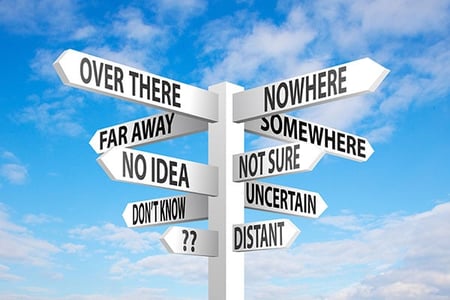 If you're like me, you woke up this morning, March 16th 2015, got to work, and looked at the weekend analytics. When looking at the Facebook statistics, I noticed that the like count for many of the pages we manage was lower than last week. Not something you want to see on a Monday morning! Did you see a similar drop in Facebook likes as well?
If you're like me, you woke up this morning, March 16th 2015, got to work, and looked at the weekend analytics. When looking at the Facebook statistics, I noticed that the like count for many of the pages we manage was lower than last week. Not something you want to see on a Monday morning! Did you see a similar drop in Facebook likes as well?
Chances are you did. Facebook just conducted a "like correction" which involved removing inactive accounts. The accounts removed were memorialized and voluntarily deactivated accounts. Facebook's goal is to give page managers more accurate and meaningful data.
Here's what Facebook had to say:
Businesses use Page audience data to understand what their followers care about. To make audience data even more meaningful for businesses, we're updating the way Page likes are counted by removing memorialized and voluntarily deactivated accounts from Pages' like counts. This change ensures that data on Facebook is consistent and up-to-date. Removing inactive Facebook accounts
There are two primary benefits to removing voluntarily deactivated and memorialized Facebook accounts from Pages' like counts:
Business results: Removing inactive Facebook accounts from Page audience data gives businesses up-to-date insights on the people who actively follow their Page and makes it easier for businesses to find people like their followers through tools like lookalike audiences.
Consistency: We already filter out likes and comments generated by deactivated or memorialized accounts from individual Page posts, so this update keeps data consistent. What to expect
Over the coming weeks, Page admins should expect to see a small dip in their number of Page likes as a result of this update. It's important to remember, though, that these removed likes represent people who were already inactive on Facebook.Going forward, any accounts that are voluntarily deactivated or memorialized will be removed from a Page's like count. If a deactivated account is reactivated, the account will be re-added to a Page's like count. Everyone benefits from meaningful information on Facebook. It's our hope that this update makes Pages even more valuable for businesses.
As a business or marketer, having a large number of likes on your Facebook pages helps put your brand in front of more people. This helps expand your reach and allows you to engage with people that are interested in your brand. Seeing your like count drop might feel like a punch to the stomach, but I believe the correction is a positive change.
Those accounts/people that were removed were not engaging with your Facebook page and dragging down the News Feed Reach algorithm. Remember, the more engagement your posts receives, the more it will show up in your follower's news feeds. This correction will give page managers a higher percentage of people engaging with posts.
Pages that paid to boost their like numbers through unsavory means like buying 1000 Likes for $50, were hit the hardest. Often, companies that sold these services would use fake or dead accounts to like pages. Never engaging with the page after they sold the like. This kills your Facebook post reach. Sure it might be nice to see your page with 20,000 likes, but if your posts have so little engagement that you're only reaching 1% of that audience, what's the point. It's far better to have a page with 2000 likes reaching 50% of the audience. The more engagement a post gets, the more reach it gets. Deactivated and memorialized accounts can't engage with a post, so that's why the like correction is a good thing.
Bottom line, grow your Facebook audience with remarkable content that inspires and encourages people to engage with you. It's okay to run Facebook ad campaigns that drive more likes to your page, just make sure those likes are highly targeted to people that will be interested in your brand. Engagement is the key to increasing your reach in the News Feed and organically growing your like count.





